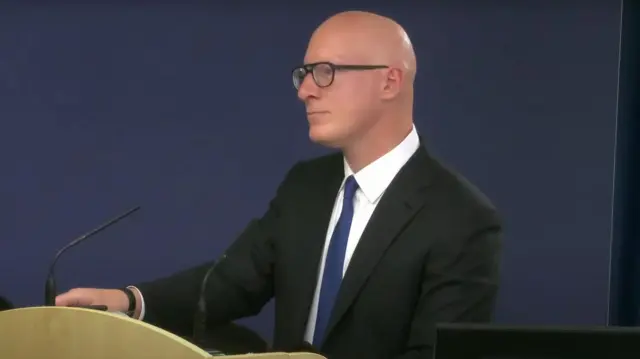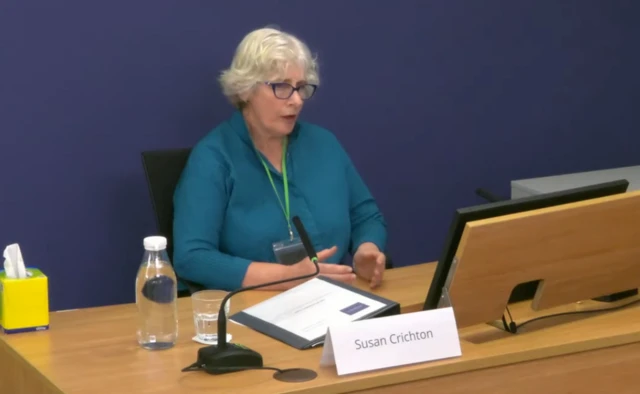Internal review was 'inappropriate use of funds' - Crichtonpublished at 16:10 BST 23 April 2024
 Image source, Post Office Inquiry
Image source, Post Office InquiryCounsel for the inquiry Julian Blake suggests the picture painted by the emails is there was an attempt to cover stuff up, like "using words other than bugs".
Susan Crichton says: "That was not my intention at the time from my recollection."
When asked if that was the intention of others, she replies "she can't speak for other people".
Blake then turns to a file note from ex-Post Office boss Paula Vennells which reads "Susan was very very angry" and she was upset a 'lessons learned review' had been commissioned.
Crichton tells the hearing she thought it was an "inappropriate use of funds" and she thought effort should be ploughed into the mediation instead.
She is asked if the file note reflects she felt she was going to be used as a scapegoat. Crichton agrees at the hearing.

